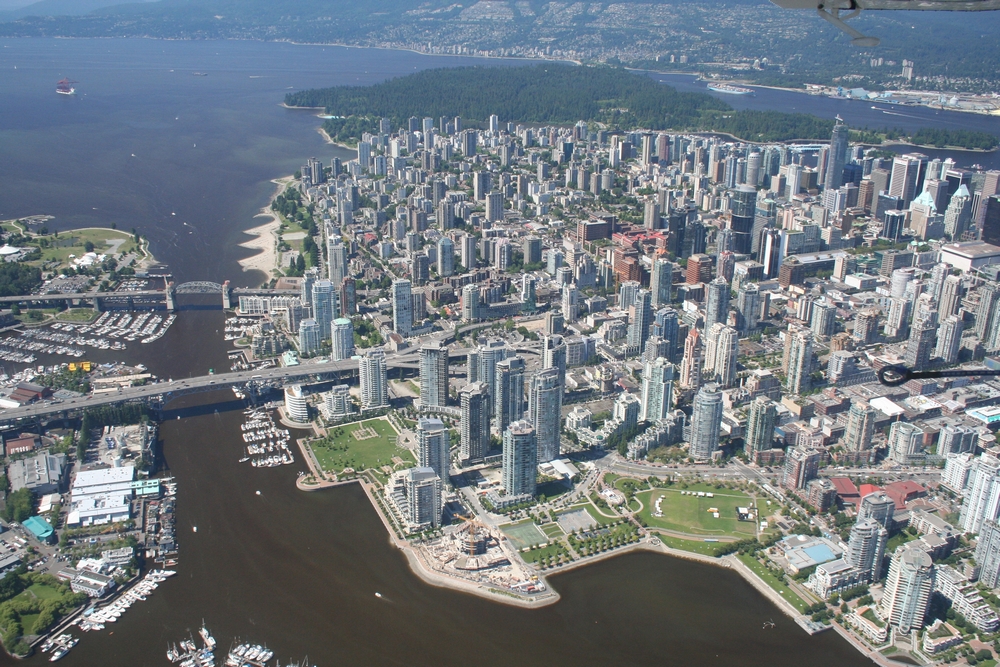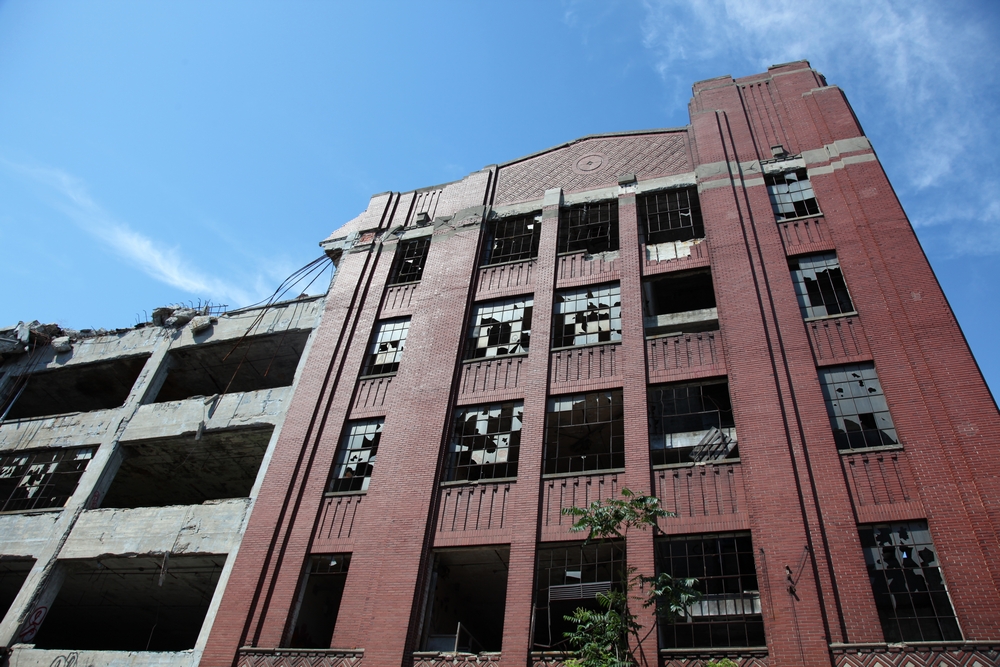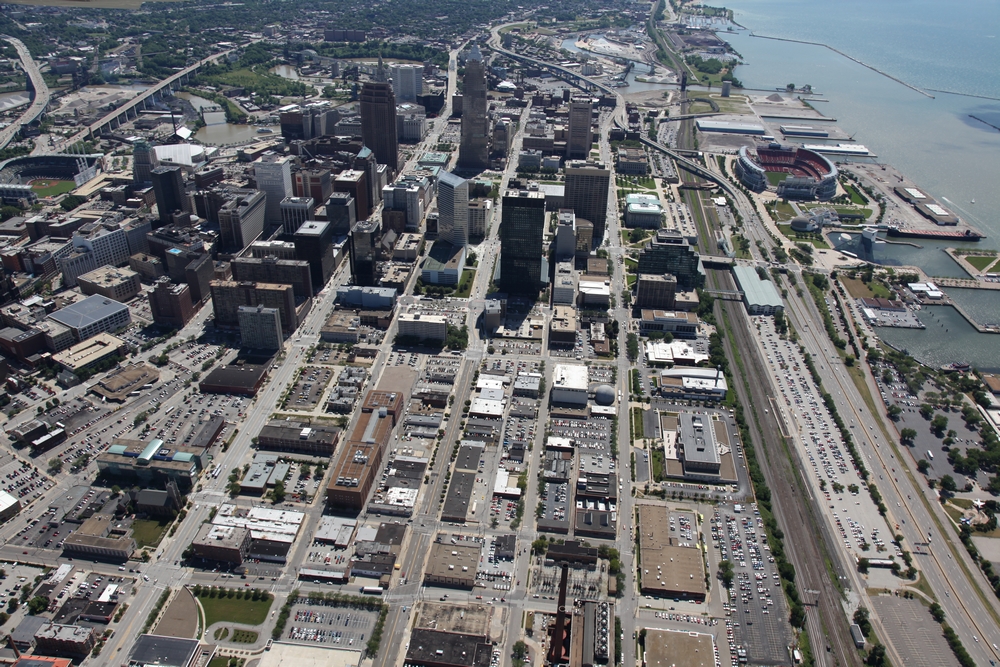

Urban Studies 200 / Geography 250
"This book opens with a city that was, symbolically, a world: it closes with a world that has become, in many practical aspects, a city." Lewis Mumford (1961), The City in History. New York: Harcourt, Brace, & World, p. xi.
Welcome to the City!
Cities represent the very best and the worst of the human condition. E. Barbara Phillips, one of the most insightful urbanists of our time, opens her important book City Lights with an imaginative suggestion:
"If you close your eyes and think about the city, what do you visualize? Sleek skyscrapers? Great libraries and good food? New ideas and world-changing inventions? Walt Whitman's Brooklyn Bridge and Gustav Eiffel's tower? Rappers rhyming? Fans cheering for the home team? Trendy fashions and diverse pleasures? Or do you envision a bomb blast in Oklahoma City and a poison-gas attack in Tokyo? Short-tempered drivers honking in gridlock? People lining up at the soup kitchen? Heatless rooms with rats and roaches? Smells of Lysol and body sweat at homeless shelters? High schoolers hiding guns in the hallways? Chilling crimes and petty irritations? People sleeping, perhaps dying, on the snowy streets of Stockholm and St. Paul? Children living in tenements and tracts, dumpsters and vans? Or estates with signs threatening 'Armed Response'?
Perhaps your vision encompasses both urban glories and dilemmas." (E. Barbara Phillips, 1996. City Lights: Urban-Suburban Life in the Global Society, Second Edition. New York: Oxford University Press, pp. 3-4).
Phillips' writing hits you right in the face with all the good, bad, and ugly, doesn't it? Personally, I'm an optimist -- and so I hope you think of the urban glories, all the joys, excitements, and energies of the city, and that the negative images recede into the background. What is clear, however, is that cities help to magnify, concentrate, and intensify whatever is happening in society.
Urban studies is the field devoted to understanding this process. It is interdisciplinary, which means that there are exciting discussions about cities among all sorts of people and scholars -- historians, sociologists, geographers, political scientists, anthropologists, economists, planners, architects ... the list goes on. Indeed, the range of people who study urban topics is so vast, and the words used by different experts are so varied, that it sometimes seems impossible to identify where urban studies begins and where it ends.
All definitions of academic subjects are, to some degree, artificial ways of simplifying the beautiful complexity of inquiry and learning. But if we absolutely had to come up with a clear definition of urban studies, what would it look like? Three definitions are most useful.
First, urban studies can easily be defined by its object of inquiry -- people, places, and processes found in cities. So our subject might be said to focus on what's happening in the four hundred cities in the world with populations of at least one million, or perhaps just the nineteen "city-regions" with more than ten million people. Yet other questions immediately appear: does urban studies include suburban areas, places where "anti-urban angst" often prevails? Does it consider rural areas that are deeply shaped by their interactions with big cities? (I respond to these questions with an enthusiastic 'yes,' but not everyone agrees.)
Second, the field can be defined by its approach. Urban studies is a vibrant and rich blend of theories and methods drawn from a variety of formal disciplines, all bound together by the attempt to understand multi-faceted phenomena of the city. And the goal of understanding cannot be divorced from the desire for action, for progressive change to improve cities and urban life. Consider how Richard LeGates and Frederic Stout survey the field:
"'Urban Studies' is the term commonly used to refer to the academic study of cities. Knowledge about cities generated by social scientists and others is sometimes taught in a single program, sometimes dispersed among academic departments. The goal of these courses is primarily to teach students to understand cities, only secondarily to empower them to change cities. On the other hand, professional city planning, town planning, and regional planning courses explicitly train students to work as city planners. Often planning courses are taught as part of graduate or undergraduate professional degree programs; sometimes as part of geography, architecture, or departments in the social sciences. ... We feel planning and policy should be informed by understanding and that studying urban planning and policy can enhance understanding." (Richard T. LeGates and Frederic Stout (2003). "Introduction." In LeGates and Stout, editors, The City Reader, Third Edition. New York: Routlege, 1-5, quote from pp. 2-3.)
A third way of answering this question is a bit more realistic, and perhaps more honest as well. Our field is defined in large part by the actual scholarly activities of its protagonists. And so things like circumstance, context, history, and personalities matter just as much as abstract principles, theories, and definitions. As one illustration, consider the circumstances around the birth of perhaps the most prominent journal in the field, Urban Affairs Review. The journal was established in 1965 by the co-founder and president of Sage Publications, "during days of urban unrest, protest over the Vietnam war, and a growing consensus that the condition of cities, in the United States and elsewhere, demanded concerted attention." Sara Miller McCune, the publisher, was concerned at the time "that publications in the social sciences did not actively reflect the urban world -- they didn't cross disciplinary lines to study what was fully happening in, say, cities." Miller McCune also launched a series of ambitious "Annual Reviews" that gradually became a "type of virtual community of interdisciplinary scholarly study directed at social critique and action" as well as a deep concern for the intricacies of public policy. (Sallie A. Marston and David C. Perry (1999), "From the Series Editors," in Robert A. Beauregard and Sophie Body-Gendrot, editors, The Urban Moment: Cosmopolitan Essays on the Late-Twentieth Century City. Thousand Oaks, CA: Sage Publications, ix-xii, quotes from p. x, p. xi.)
As noted above, however, all disciplinary boundaries and definitions are somewhat artificial. My own bias is to approach urban studies less as an "object" and more as a lens -- a way of seeing the world from an 'urban' perspective. I have little doubt that this perspective will become more widespread and more important: a few years ago, global population estimates suggested that for the first time in human history, an outright majority of the world's people lived in urban areas. For the forseeable future, nearly all of the world's projected population growth will take place in urban areas. In many ways, therefore, the general questions and challenges for human civiliization are becoming distinctively urban questions and challenges. So we have a lot of fascinating and important things to explore...!
CopyLeft 2011 Elvin K. Wyly
Except where otherwise noted, this site is
licensed under a Creative Commons Attribution 2.5 License
ElviNotes
If this is your first time here, please read these terms of use.
[Tuesday, September 6: UBC Imagine Day, all courses cancelled.]
Read before class (rbc): notes on teaching, guidelines for written projects, a bragsheet for a few of the students who've taught me, and the course syllabus.
Our guest for today -- Charlotte Watson -- offers the following materials if you might be interested in career opportunities in transportation planning:
Watson, Charlotte (2011). Transportation Planning: Careers and Opportunities. Surrey, BC: City of Surrey. Posted with permission.
Watson, Charlotte (2011). Transportation Consultancies in Metropolitan Vancouver. Surrey, BC: City of Surrey. Posted with permission.
Walking tour...Meet me at the intersection of Granville & Georgia, 10:00 AM. My Cell is 778 899 7906.
rbc: Phillips, pp. 3-18.
Discussion: "The Seminar," and mapping personal urban biographies.
rbc: Phillips, pp. 42-65.
rbc: Phillips, pp. 74-96.
Discussion: The Contemporary Relevance of Urban Archaeology
rbc: Phillips, pp. 106-117.
Tuesday, September 27. Dubai case study (film), no written lecture notes.
Discussion: Preparation for Midterm Examination
rbc: Phillips, Chapter 5.
rbc: Phillips, Chapter 6.
Thursday, October 6. Midterm examination.
Shortly after the midterm examination, results will be posted here.
rbc: Phillips, Chapter 7.
Discussion: "City Book Review" project option
rbc: Phillips, Chapter 8.
rbc: Wyly, "Things Pictures Don't Tell Us: In Search of Baltimore."
Discussion: "Writing the City with Light" project option
rbc: Phillips, Chapter 9.
rbc: Phillips, Chapter 10.
Discussion: "City Media Analysis" project option
rbc: Phillips, Chapter 11.
Discussion: Space and Place: The Case of the Vancouver Public Library
rbc: Phillips, pp. 520-521, 539-542, Chapter 17.
rbc: Phillips, Chapter 13.
Discussion: "Mapping Cities of the Mind" project option
rbc: Phillips, Chapter 14.
Discussion: "City Power Networks" project option
rbc: Phillips, Chapter 15.
rbc: Phillips, Chapter 18.
Discussion: Advice on Projects, and Preparing for the Final Examination
Thursday, November 24. Guest Lecture: Pablo Mendez, Doctoral Candidate, UBC. Geography.
Thursday, December 1. Conclusions and Reflections: An Urban Future.
rbc: Phillips, pp. 657-678.
*
Final Examination: Thursday, December 8, at 3:30 PM, in Chem B250.
Urban Studies Journals
Scholars who love cities publish in many different kinds of books and journals. Here's a small sample of some of the best places to find the latest advances in our thinking about cities and urban life. Please note that you may need to be working on a computer at UBC, or working through a proxy server or Virtual Private Network, for these links to give you full access to the articles.
Above: Downtown Vancouver, June 2008; Below: Abandoned Packard Plant, Detroit, Michigan, July 2010 (Elvin Wyly).
Assorted Distractions
...in no particular order
City+Music+Video
Petula Clark (1965). "Downtown." Belt the word out loud, at the top of your lungs.
Frank Sinatra (1981). "Chicago." It's all brilliant...except for the kudos to Illinois for voting for ... *barf*... Reagan.
Flight of the Conchords (2007). "Inner City Pressure." Thanks to Jeremy Adderly for the recommendation.

If you have time...
Revitalizing Planning: The Indigenous Challenge
Friday, November 4, 8:30 AM - 4:30 PM
First Nations Longhouse
For details, see this.
If you're still considering a major, or if you're considering graduate study...
Majors' Night, and Grad School Information Sessions
November 15, 17
For details, see this.
September-December 2011 Edition









